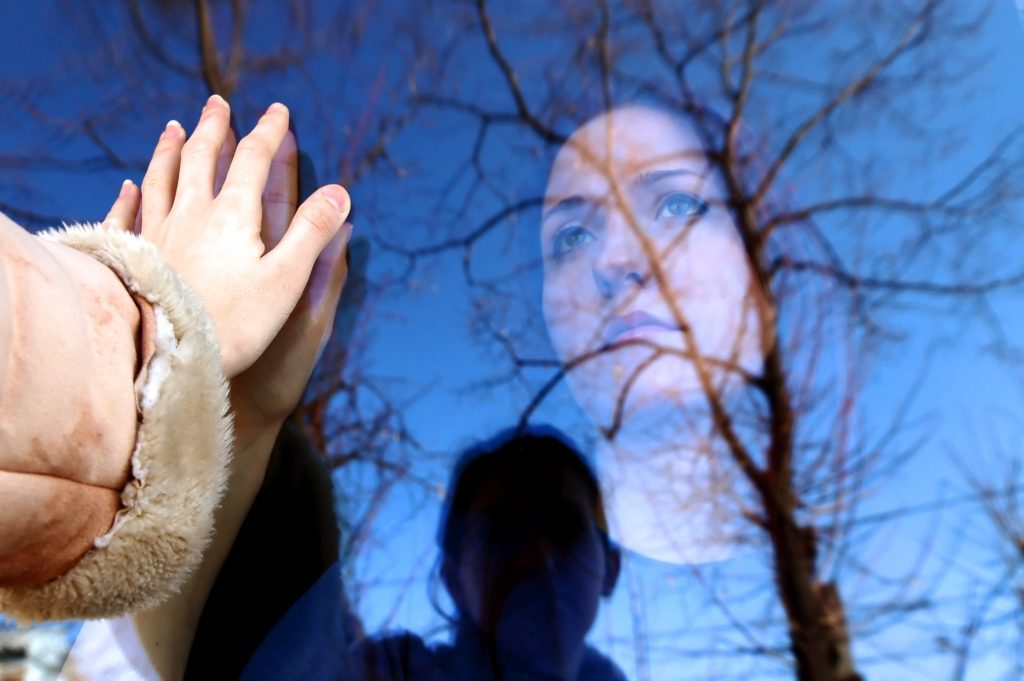
I’ve heard it repeatedly — friends, clients, and family members telling me that their marriage was lonely and sexless. That they were alone for so many years while partnered that they don’t need (nor want) to devote a window of time post-breakup or divorce to flying solo. This seems to infer that being alone in their marriage affords them a pass from being alone single and allows them to bypass devoting a concerted window of time post-breakup to being on their own.
And every time I hear this, it never feels felt quite right. It gets stuck in my craw and wears at me like a piece of gravel in my sneaker. My mind grapples with the meaning of these statements. With what it says about how we as a society view living solo. With how we perceive singlehood and people who choose not to partner. I bristle because implicit in these comments are values, biases, and fears. It’s fraught with stereotypes and myths, and most importantly, it misses the mark — that being alone in your marriage is not the same as being alone and single and that this is an important distinction to make. It reminds me of people who say they were single parenting while their partner was away for a weekend, that parenting without their partner home was a piece of cake. It’s misguided and inaccurate.
Being alone in your marriage can be profoundly painful, much worse in my experience than being single. Nothing quite compares to the dull and constant ache of having your partner, someone perfectly capable of giving hugs and helping with laundry, sitting lifeless in the next room, coming home clueless from work, walking past you like a ghost. The presence of a loved one in our proximity who does not respond to our aches, needs, and desires amplifies existential realities we often turn to others to alleviate. Realities like we are born into this world alone, and similarly, we will go out alone — that the birth canal and the delirium of dying are individual endeavors, no matter who will hold our hand, nurse us or greet us in the spirit world.
I can still remember a day when my then-partner was sitting on the couch, not even ten feet away from me. I was cooking and accidentally burned my arm by spilling chicken broth. I remember how I cried out and recoiled from the hot liquid that seared my skin, how I heard the continuous clicking on his laptop keyboard while he stared blankly at the screen and did not acknowledge my pain. It’s an extreme example, but you get the gist, we rely on others, our partners, to be there when we need them and when they are not there for us, we feel more acutely alone than we ever would if we were on our own.
But here’s the deal, if you leap from a lonely marriage into a new partnership with no break in between, you miss something that I believe is essential — the opportunity to have a relationship with your adult self and to fall in love with life on its terms. In my experience, the most enduring way to tackle loneliness is through cultivating a relationship with solitude. But sadly, when I go to the thesaurus to investigate solitude, I find words like emptiness, isolation, confinement, loneliness, and wasteland; therein lies my point. We live in a culture that conflates solitude with loneliness; we do not make a nuanced distinction between the two; we are crude people when it comes to words. Something as simple as defining solitude gives way to our cultural fears, biases, and very understandable human vulnerabilities. There is power in language. It can permeate our thoughts and weave a spell, have us stumbling blindly into the arms of another where we expect things will be different, and maybe they will be — for a while. But as any Gen Xer should remember, when Luke Skywalker pulled off the mask of Darth Vader in the Cave of Evil, Luke saw his own face, not Vader’s. Translation: Swapping out partners still brings you back to yourself.
The reality is, it is not either/or. Relationships teach us much when we let them, as does solitude. There is a sweet spot in between serial monogamy and desolation. It requires us to devote a balanced and ample window of time in both relationship and solitude. I’m speaking to the tendency of most American adults to favor the first camp and avoid the second — to treat singlehood as the ugly stepchild adopted only when external circumstances thrust it upon us. I’m offering encouragement that if you commit to spending a minimum of a year alone, the universe may reward you ten-fold. That you will feel as if you have a superpower. Like the unavoidable realities of life: Heartbreak, disappointment, difficult people, and loneliness are no match for your newly found courage, and that this is akin to flight — freedom of spirit.

I’m aware that what I’m advocating for is unpopular. I get the genuine human need for connectedness and touch. I am a couples therapist; my alliance is to love and commitment. I am also a fifty-two-year-old woman, and as such, I have lived many lives. I have felt the bliss of new love and the solid, steady reliability of a twelve-year marriage — the dependability of someone who will notice if I go into cardiac arrest one afternoon, who can pick up medicine if I am home sick with the flu. I have experienced being a single mother and sole provider, laid in my bed at night with my baby girl in my arms while ice pellets pummel my roof, the power out, no heat but the warmth of our bodies. I’m not the first to wonder if my beloved would poison me and certainly not the last to feel the sting of love gone wrong.
I’ve felt the terror of running headlong into heartbreak more than once, and sometimes I’ve lept, and sometimes I’ve cowered. Though, if I’m to be honest, it’s morphed into it’s a hybrid move, a cower-leap sort of thing.
There have been predictable moments of tenderness, sorrow, terror, joy, and emptiness in each lifetime I’ve lived. What I take away is knowing that cultivating a relationship with oneself is necessary if we wish to embark on the lofty ideals of modern-day love. That mutuality, domesticity, and intimacy — relationships functioning as “people growing machines” are possible. But that they demand of us something far more complex than the nuclear families of our parents — unions rooted in gendered roles and pragmatic resignation to the mundane and the terrible. I hold out hope for the former and shun the latter. I am a believer in modern love.
When my last long-term relationship ended in 2019, I committed myself to spend an entire year single. That year morphed into two-plus years with the onset of COVID19 and the challenges it brought to dating. During that time, I watched no less than six friends become separated, divorced, and re-partner. I’m truly happy for them and genuinely wish them the best. Still, I’m acutely aware that I bring my own biases, and sometimes I feel that I’m in a bind.
* * *
I’m in the business of selling health. As a couples therapist, I err towards preventative medicine versus managing symptoms. I’m more like the doctor promoting eating well and exercise than the physician who hands you a bottle of pills to manage Type 2 diabetes. Sometimes, I feel like people no more want to hear a couples therapist touting the merits of solitude than they want to see a dentist and get a root canal. And it’s OK to re-partner right after a breakup or have a series of flings (I’ve been there), but please don’t claim you get the Fastpass because you were alone in your marriage, don’t trick yourself like that. Say it feels good, say you are afraid, horny, or lonely, say anything (but that) because they are different types of aloneness and can’t be swapped out.
And if you are looking for guidance about what to do if your relationship ends or wondering how to heal best and not repeat the same mistakes — to be fully present for your children as you navigate divorce. Not surprisingly, my recommendation is to stay single for a good long chunk of time. Hang out with every facet of you, with the full catastrophe of living. If you are heterosexual, partake in gender-bending roles that your partner once did. Spend a holiday alone. Have sex for one. Laugh and cry and laugh again. I promise it won’t kill you. And in time, you’ll come to trust that if you shout holy hell at the heavens, a voice will answer (call it the universe or call it yourself), and you’ll understand that you never have to be alone again — in a partnership or singlehood. That the soul-sucking aloneness that nearly killed you has a foe and that your superpowers are there for you — they were all along.
* * *
Are you on the fence about whether to stay or leave your marriage? Do you feel you have tried everything but still feel trapped in relationship-limbo-hell? Join me for my free webinar, Is My Marriage Worth Saving? I will be offering it on three different dates in October and will be available to answer all of your questions, including options for working with me.
